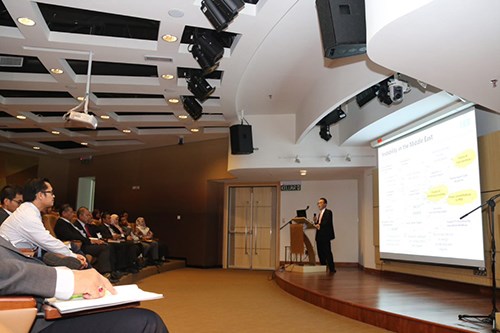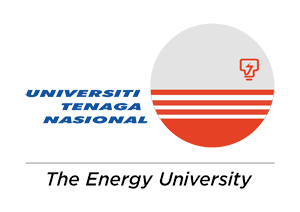Global Energy Governance on Energy Security and Climate Change
Published on Friday, April 12, 2019

Energy Commission was hosting a talk on Global Energy Governance on Energy Security and Climate Change on 12th February 2019. The talk was given by Professor Dr. Ken Koyama, the Chair in Energy Economics of Energy Commission at Universiti Tenaga Nasional (UNITEN).
Professor Dr Ken Koyama is the Managing Director of the Institute of Energy Economics, Japan (IEEJ). He joined the IEEJ in 1986 and has held various positions within the Institute, such as Senior Economist, Head of the World Oil and Energy Group, as well as Senior Research Fellow in the Energy and Strategy unit. Currently, he is the Chief Economist at IEEJ. Alongside his current position, Professor Koyama has also taught at the University of Tokyo’s Graduate School of Public Policy since 2010. He is also currently the Chair in Energy Economics of Energy Commission at UNITEN since 7 December 2015.
The talk was conducted to highlight the historical development, current status and future challenges for global energy governance. A special focus has been given on the mechanism to maintain the stability of the oil market in the world, power-house struggle in the pursuit of energy security and international climate change negotiation.
About 65 participants from various background such as Energy Commission, Malakoff, MESTECC, Gas Malaysia Berhad, TNB, NUR Power Sdn. Bhd., Petronas Gas Berhad, Aker Solutions, HESS, UNITEN, UKM and UTeM attended the talk. The participants had the opportunity to ask questions related to the topic at the end of the session.
The talk facilitated a common understanding that energy security is an imminent challenge for Asia. Regional cooperation is needed and a change of mindset among policymakers from ‘national energy market’ to ‘regional energy market’ is vital. Cooperation among Asian countries is essential so that synergies can be obtained to enable optimal and efficient use of existing resources, capital, technology, know-how, infrastructure and etc. Also, it will lend Asia bigger bargaining power.

